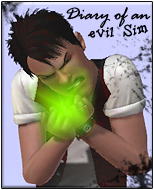Populous DS
sketch | Mar 08, 2009 | Comments 0
Developer: EA Japan / Publisher: Rising Star Games

Twenty years ago, the God genre was kick-started by the work of two men, Peter Molyneux and Will Wright. While Wright introduced the world to Sim City and went on to produce arguably some of the most commercially successful games in the God genre and it’s Jesus offshoot, Molyneux created the original and purest form of God game in Populous. Developed by Bullfrog in 1989, Populous became an award winning classic, spawning two sequels across various platforms, and firmly fixed Molyneux’s star in the gaming cosmos. It seemed only logical, given how well the DS’s interface lends itself to games of this nature that Populous and it’s ilk would eventually arrive on the handheld.
Populous is a simple tale of good versus evil – the gods who created the world (Earth, Fire, Wind, Water, and Harvest) pitted against demons of similar powers who sprung from the wicked hearts of men and dare to challenge the gods for control over the world. Each faction draws it’s strength from it’s worshippers and paradoxically, even a god cannot function without the devotion of it’s people to give it it’s powers. Gods need Psyche Energy in order to perform miracles which is generated from the houses of your worshippers and is stored up to be used to either aid them or hinder your foe. Your worshipers need space to build so you have to flatten the landscape and remove obstacles which allow houses to expand and generate more Psyche Energy. Should you take too long, your worshippers will lose Spirit and eventually die and your rival will gain ground on you.

Wonderful graphics show what happens when you play with fire
Simple orders can be used to control your worshippers, but their most important function will be to build. Worshippers alone cannot win the game for you though which is where the disruptive element comes into play in the form of Miracles. Depending on the god you play, Miracles will vary, however, access to the nastier ones is withheld until you have amassed a sufficient amount of Psyche energy, so unleashing a meteorite to devastate your enemy’s followers requires patience and much landscaping. In fact, everything about Populous requires patience and much landscaping and this is unfortunately where the game loses it’s charm and becomes grating.
Thankfully, control is simple and landscaping can be done with simple stylus movements which admittedly can prove problematic if you are too hasty, resulting in creating town levelling peaks with clumsy ease. The top screen shows the changing world and results of your actions in the isometric work map which is assigned to the touch screen, along with the bars, gauges and order buttons where you will exercise your powers, all of which are intuitively laid out. Miracles are also located here while the animations are played out beautifully in the top screen, but the most important thing, aside from the Armageddon clock is the gauge representing tribal influence which compares rival worshippers – if the bar is more red than blue, you need to swing the balance, or come Armageddon, your backside will be toast.

You made them angry...
As entertaining as the Miracles can be, the novelty wears off quickly as you will be so preoccupied with endless landscaping that you won’t have much time for anything else but listening to the suitably dramatic underscore. Even the stunning and detailed world occupying the top screen is sadly wasted as your attention will be focussed on repetitive stylus sweeps on the work map while occasionally taking a moment to send an earthquake or tidal wave to blight the enemy. The orders which you can give your worshippers are largely irrelevant, as is ordering them to battle – the occasional Miracle is a far easier way to put a crimp on a demon’s day while you keep your worshippers building…do enough to swing the gauge in your favour and victory come Armageddon is assured. And that is it.
When you scrape away the novelty of the Miracles and the gimmicky landscapes such as fairytale, outer-space and 8bit (featuring Nintendo consoles past and present…yes, you read that correctly), the game is simple and actually quite dull. The repetitive grind of constant landscaping isn’t enough to justify the occasional fun piece of devastation and it is too easy to fall into a pattern of scrabbling to nudge the gauge up and then triggering Armageddon as soon as possible to save any further tedium. Armageddon is perhaps one of the most entertaining aspects of the game with legions of little worshippers in red and blue swimming trunks bitch slapping one another to the strains of Ode to Joy from Beethoven’s Ninth. It is almost worth the wait. Almost.
Sadly Populous however, was not. As one of those games that launched a genre and is remembered as the classic it was, now, however beautifully revamped, seems sadly dull when not viewed through time’s rose-tinted window. Some will undoubtedly love it, and as a quick time filler it is entertaining enough…it just won’t nuke your world.
Summary
A beautifully revamped classic which is sadly better remembered than replayed. Easy controls and rich graphics can’t save it from repetitive, grinding gameplay, and while the Miracles are diverting, Armageddon can’t come soon enough.
Filed Under: Nintendo DS • Reviews

